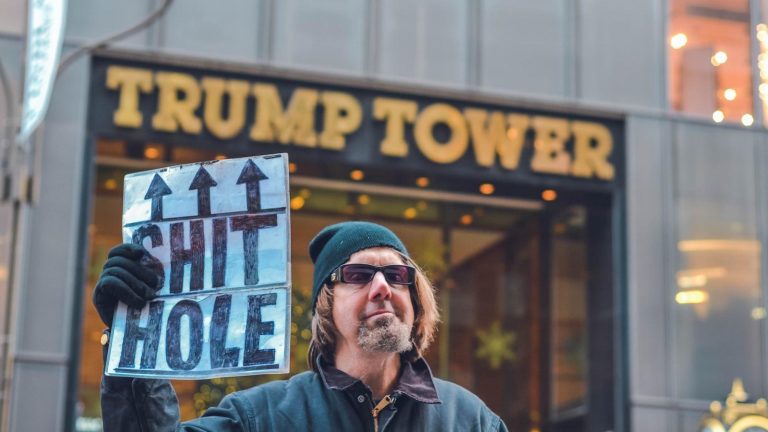The Supreme Court recently issued a ruling that clarifies the circumstances under which government officials can be held accountable for blocking individuals on social media platforms. This decision has significant implications for the intersection of free speech and government authority in the digital age.
Understanding the Supreme Court’s Decision
In a landmark case, the Supreme Court outlined that government officials cannot block individuals on social media based on their viewpoints. This ruling emphasizes the importance of upholding the First Amendment rights of individuals, even in the online realm. Government officials are now required to ensure that their social media accounts remain open to all viewpoints, regardless of whether they agree with them or not.
Implications for Government Officials
This decision serves as a reminder to government officials that they must be mindful of how they interact with constituents on social media. Blocking individuals based on their viewpoints can now be seen as a violation of their First Amendment rights. Government officials must now approach social media engagement with a commitment to fostering open dialogue and respecting diverse perspectives.
Protecting Free Speech Online
The Supreme Court’s ruling underscores the importance of protecting free speech in the digital age. Social media has become a vital platform for individuals to express their opinions and engage in public discourse. By prohibiting government officials from blocking individuals based on their viewpoints, the Supreme Court is safeguarding the principles of free speech and ensuring that all voices can be heard.
Moving Forward
As we navigate the complexities of social media and government interaction, it is essential for officials to uphold the principles of free speech and open dialogue. By following the guidelines set forth by the Supreme Court, government officials can create a more inclusive and democratic online environment. It is crucial for officials to embrace diverse viewpoints and engage with constituents in a respectful and transparent manner.
In conclusion, the Supreme Court’s recent ruling on social media blocking by government officials highlights the importance of protecting free speech online. By upholding the principles of the First Amendment in the digital realm, officials can foster a more inclusive and democratic society. It is imperative for government officials to approach social media engagement with a commitment to respecting diverse viewpoints and promoting open dialogue.
In Shadow of Trump Tweets, Supreme Court Outlines When Officials Can Be Sued for Social Media Use
Background
In today’s digital age, social media has become an integral part of communication for public officials, allowing them to connect with their constituents in real-time. However, the use of social media by government officials has sparked controversy and legal questions, particularly in cases where officials have been sued for their online activities.
Supreme Court Ruling
The recent Supreme Court ruling has provided clarity on when government officials can be held accountable for their social media use. The court outlined that public officials can be sued for their online conduct if they use their platform to conduct official business or make statements related to their official duties.
Key Points of the Ruling:
- Government officials can be sued for their social media use if they are acting in their official capacity.
- Statements made by public officials on social media can be considered official statements.
- The ruling does not prevent public officials from using social media, but rather sets guidelines for their online behavior.
Implications
This ruling has significant implications for public figures who use social media as a means of communication. It serves as a reminder that even on digital platforms, public officials are held to a certain standard of behavior and accountability. With the increased visibility and reach of social media, officials must be cautious in their online interactions to avoid legal repercussions.
Benefits and Practical Tips:
While social media can be a powerful tool for public officials to engage with their constituents, it is important to exercise caution and discretion when using these platforms. Some tips to ensure responsible social media use include:
- Separate personal and official accounts
- Think before you post – consider the potential ramifications of your statements
- Be mindful of privacy settings and who can access your posts
Case Studies
Several high-profile cases have highlighted the potential legal implications of social media use by public officials. From President Trump’s tweets leading to lawsuits to local government officials facing backlash for controversial posts, these cases serve as cautionary tales for those in positions of power.
Firsthand Experiences
Public officials who have navigated the realm of social media understand the challenges and complexities of balancing authenticity with professionalism. By sharing their experiences and insights, they can provide valuable guidance to others in similar positions.
The Future of Social Media Use by Officials
As social media continues to play a prominent role in communication, the Supreme Court’s ruling sets a precedent for how public officials should conduct themselves online. By understanding the legal implications of their social media use, officials can engage with their audience in a responsible and transparent manner.
Conclusion
The intersection of social media and government presents unique challenges and opportunities for public officials. The recent Supreme Court ruling sheds light on the legal boundaries of online conduct for officials and serves as a reminder of the importance of accountability in the digital age.
| Official Social Media Use | Legal Implications |
|---|---|
| Acting in official capacity | Can be sued for online conduct |
| Privacy settings | Consider who can access your posts |
The post In shadow of Trump tweets, Supreme Court outlines when officials can be sued for social media use appeared first on lawyer.bet.




